

Volkswagen is not the only foreign carmakers moving aggressively to raise output in China.
In just two weeks, US carmaker Ford Motor's three-way tie-up with Mazda and China's Chang'an Automobile Group announced two ambitious plans to expand capacity.
On April 5, it announced it would invest $600 million yuan in a new plant in Chongqing. Fourteen days later it released another plan to build a $760 million yuan facility in Hangzhou.
The intensive investment could push the joint venture's total yearly output in China to more than 1.2 million units by 2015.
Last year, Ford promised to bring 15 new models to China before 2015.
At the Beijing Auto Show it will show a rich lineup led by the all-new Focus and its three latest SUVs.
"The Chinese market is so important to foreign automakers that they have to accelerate the introduction of new cars and provide a complete and diverse lineup," said Zhong Shi, an independent auto analyst based in Beijing.
New faces are always intriguing at auto shows.
Absent from the last Beijing Auto Show, Italian carmaker Fiat returns to the stage this year with the global debut of the Viaggio, the first model to be produced at its joint venture with Guangzhou Automobile Group.
The compact car is scheduled to hit the market in the third quarter this year and its market acceptance will count a great deal on whether the Italian manufacturer can make a successful comeback to China. Its previous partnership with Nanjing Automobile Corp failed in 2007.
Domestic brands
For domestic carmakers, the hard days began last year as tax breaks on small cars lapsed and the overall market slowed.
"Domestic brands benefited the most from incentives on small cars and were impacted the most after the favorable policy expired," said Lin Huaibin, an auto analyst at IHS.
In the first three months of this year, the market share of indigenous-brand passenger cars, including minivans, dropped to 42.9 percent, a decline of 3.2 percentage points from a year ago, according to CAAM.
"The good result of a stressed market environment is that carmakers have to place more emphasize on quality, so at this year's Beijing Auto Show, new products by homegrown carmakers and the changes in their strategies are worth seeing," Zhong said.
Anhui-based Chery Automobile Co is showing 20 models at the auto show, including three models making their global premieres.
The Cowin 5, Riich G2 and new Eastar, which augment Chery's classic product portfolio of the Tiggo, QQ, A3 and G3, represent the carmaker's increasing competitive strength.
Two concept vehicles on display by Chery show its improving capacity for innovation.
The concept SUV TX features a streamlined body that draws its inspiration from the surface tension of water. The new energy concept @ant, which gets its name for a bionic exterior, is a nimble, futuristic small car with components that can be connected to increase fuel mileage.
BAIC Group, the partner of Daimler AG and Hyundai, will debut the first mid-sized sedan carrying its wholly owned Beijing marque.
Based on Saab technologies the group acquired in 2009, the car is designed to tap more affluent local customers than the other compact models made by the group.
 Summer life of a 'Migrant kid'
Summer life of a 'Migrant kid'
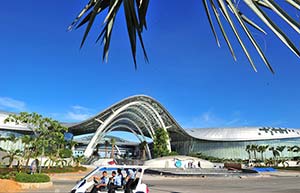 World's largest duty-free shopping center to open in Sanya
World's largest duty-free shopping center to open in Sanya
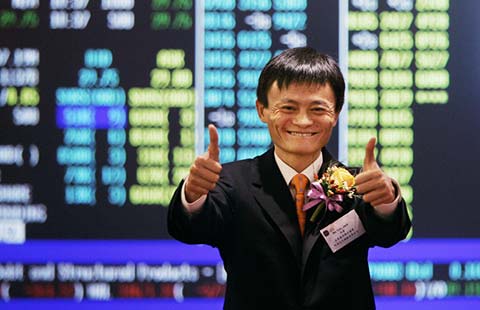 Top 10 newsmakers who rocked China's stock market
Top 10 newsmakers who rocked China's stock market
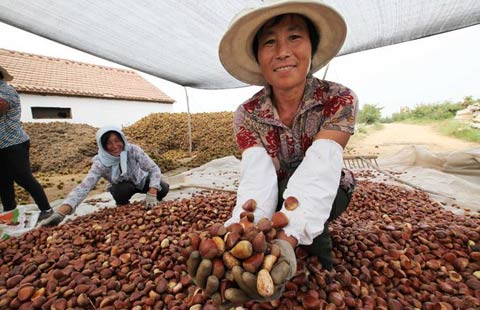 Chestnut, peanut and rice farmers of China
Chestnut, peanut and rice farmers of China
 Macworld/iWorld Asia 2014 exhibition kicks off in Beijing
Macworld/iWorld Asia 2014 exhibition kicks off in Beijing
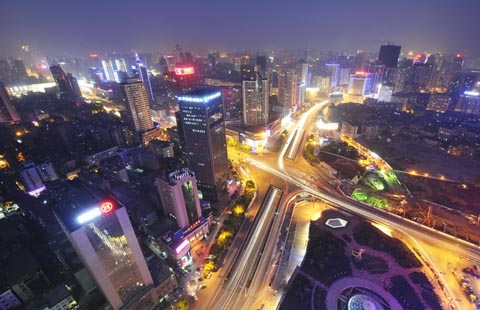 Top 10 Chinese cities with best business environment
Top 10 Chinese cities with best business environment
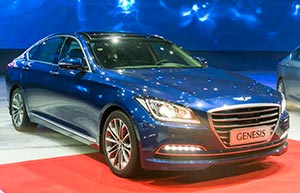 Hyundai launches New Genesis to Chinese market
Hyundai launches New Genesis to Chinese market
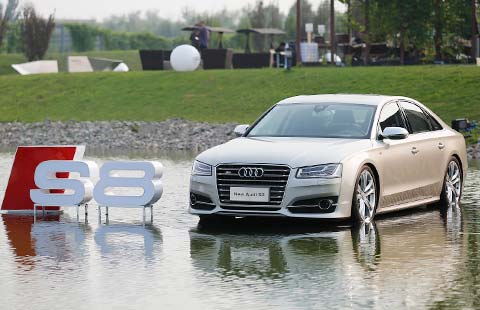 New A8 series show Audi's evolution
New A8 series show Audi's evolution